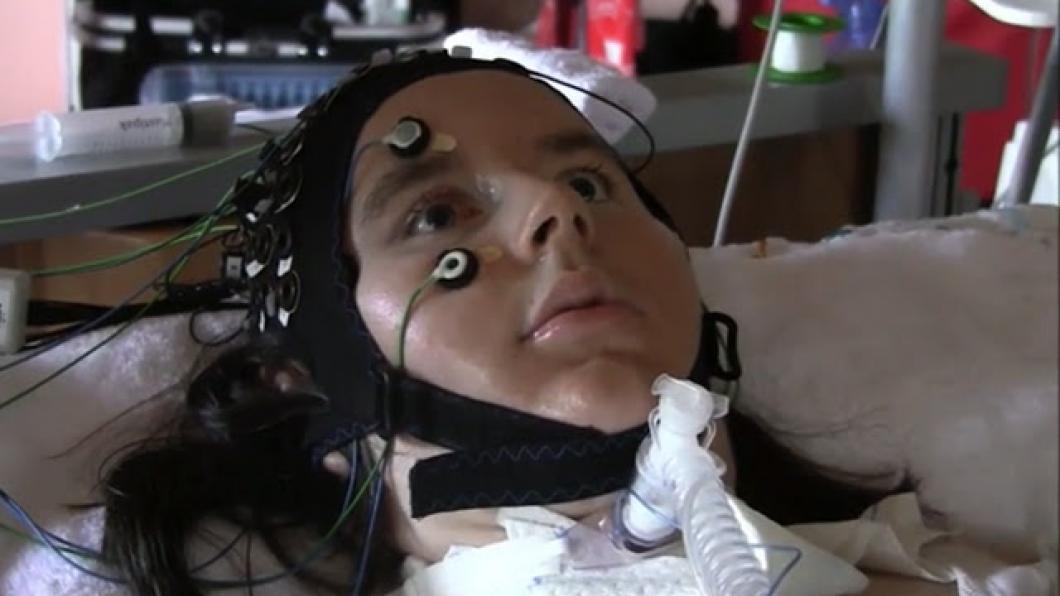
With mind-reading device, 'locked-in' people say they're happy
By Louise Kinross
Patients with no control over their bodies answered questions with a brain-computer interface that learned to read their mental “yes” or “no” in a groundbreaking study in PLOS Biology.
The four paralyzed patients with amyotrophic lateral sclerosis (ALS), who are described as being "locked-in," learned to answer personal questions like “You were born in Berlin” and open-ended questions like “Are you happy?” by thinking “yes” or “no.”
The scientists were able to detect distinct changes in blood oxygen levels that corresponded with each person’s “yes” and “no” response using near-infrared spectroscopy. The device, which sits on the person’s head like a swim cap, emits near infrared light into the brain and records returned light, tracking changes in blood flow that relate to brain activity.
Patients completed between 20 and 46 sessions over many weeks with an accuracy of above 70 per cent with questions with known answers, like “Your husband’s name is Joachim.” Over time the system gets better at reading each person’s brain signals.
In what was reported in news stories as a surprise, three answered “yes” to “I love to live” and “Are you happy?” The fourth patient wasn’t asked these open-ended questions because her parents said her emotional state was fragile.
Lead investigator Niels Birbaumer, a neuroscientist at the Wyss Center for Bio and Neuroengineering in Geneva, said the patients and their families were “excited” to communicate after as many as four years of silence, and to know that their loved ones wished to remain alive on ventilators.
In an email interview, BLOOM asked Dr. Birbaumer if the results suggest that assumptions that non-disabled people make about life with severe disability being “not worth living” were wrong.
“Yes,” he wrote back. “They are utterly wrong. Many papers prove this.”
He said the findings indicate that people are much more able to adapt to disability than we expect.
In the paper, the scientists wrote that the three patients who were asked questions about quality of life, like "Are you happy?," repeatedly responded "yes, indicating a positive attitude towards the present situation and towards life in general."
The patients all lived with their families at home.
Photo by the Wyss Center